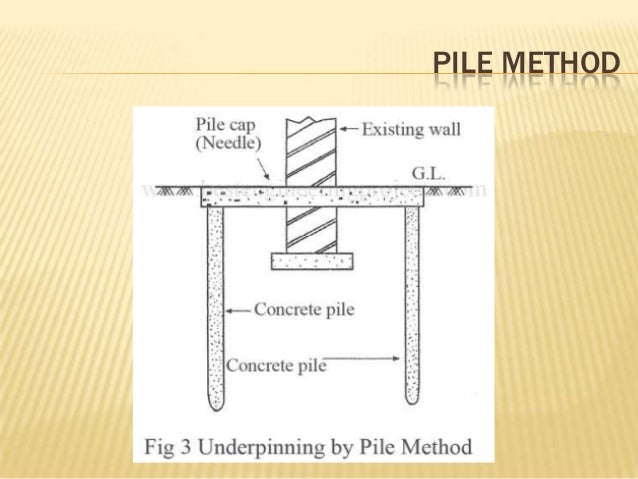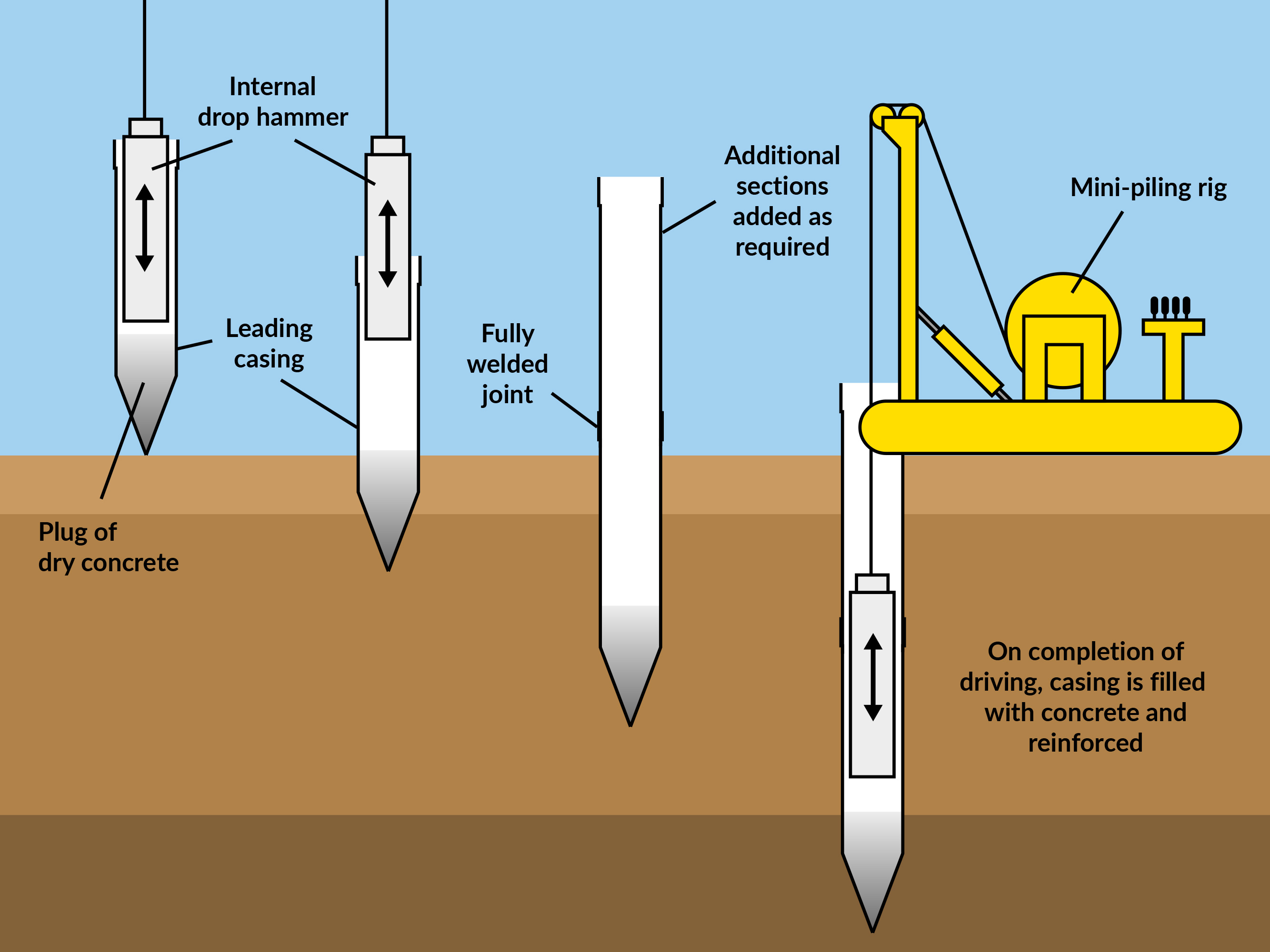Advantages And Techniques Of Underpinning
Underpinning is the process used for strengthening and
stabilizing the foundations of existing structures and buildings. The need of
underpinning arises when the foundation of a building is weakened due to a number
of factors. The process involves the repairing and strengthening of the area
under a load of an existing foundation.
Some Common Techniques Of Underpinning
Underpinning is done by using various techniques depending
upon the need to repair a structure. It is essential to understand the
structure of the foundation, the supports used in it and the factors that are responsible
for the damage caused to the structure.
Pile Method
In this method, concrete piles are embedded on both sides of
a wall like screw piers are used in
screw piling. Then needle beams are used over the piles, which passes through the
wall. Here the needle beams function as pile caps and they alleviate the load
from the wall. This method is very useful for waterlogged soils, where the
walls carry heavy loads. In these situations, the piles and needle beams become
a permanent part of the establishment without disturbing the existing
foundation of the walls.
Mass Concrete Underpinning
This process is excellent for shallow underpinning which
involves the excavation of weak soil under the foundation and replacing it with
more strong mass concrete. As a concrete base is much stronger than the soil,
it holds the weight of the structure more effectively and firmly.
Beam Base Method
This technique of underpinning is a traditional way of using
concrete to create bases. This method also involves using the beams to support
the existing foundation. The load of the structure is transferred to a concrete
beam constructed underneath it. The concrete beam transfers the entire load to
a mass concrete base which spreads it uniformly for support. How the beams are
constructed also depends on the architecture of the structure supported by the
foundation.
Mini Piled Underpinning
In this method, the entire load of the structure and the
foundation is transferred to the deep stable soils under the ground. The depth
of the soil is usually kept more than 5 meters. The constructed piles are
enclosed in steel, and their diameter is between 15 cm and 30 cm. Piles are
then driven into the drilled holes, which rests on a stable soil below the
ground level. The piles may also be constructed to reach as much as 15 meters
below the ground level. The method is similar to CFA piles, with the only difference, that in CFA piles we use
flight auger drill while in mini piles, we use constructed piles directly.
Advantages Of Underpinning Piling
1. It provides
structural strength to a building and increases its lifespan. Underpinning is
beneficial especially in areas with harsh weather conditions.
2. Increases the
space in a building as lowering a basement can provide up to 50 percent more
usable space as compared to bored piles.
3. When lowering a
basement floor, the systems like hidden plumbing, electrical wirings,
insulation, and HVAC systems are uncovered. It becomes easy to access them for
inspection, repair, and up-gradation.
4. Older basements
have common problems like cracks and leaks that allow the seepage of water. The
moisture problems in the basement lead to the growth of mold and musty odours.
Underpinning makes it possible to repair any such problem areas.
5. Remodelling a
basement needs an investment of money, but it offers a great return on
investment while selling the property. Basement underpinning adds living space
and increases the value of a property up to 10% as buildings with finished
basements attract more potential buyers.
Final Words
These benefits of basement underpinning make it one of the
best ways to add more usable space to an existing building. The techniques used
in underpinning can strengthen and stabilize the foundation of any structure or
building.


I have found that this site is very informative, interesting and very well written. keep up the nice high quality writing. Steelwork design
ReplyDelete